
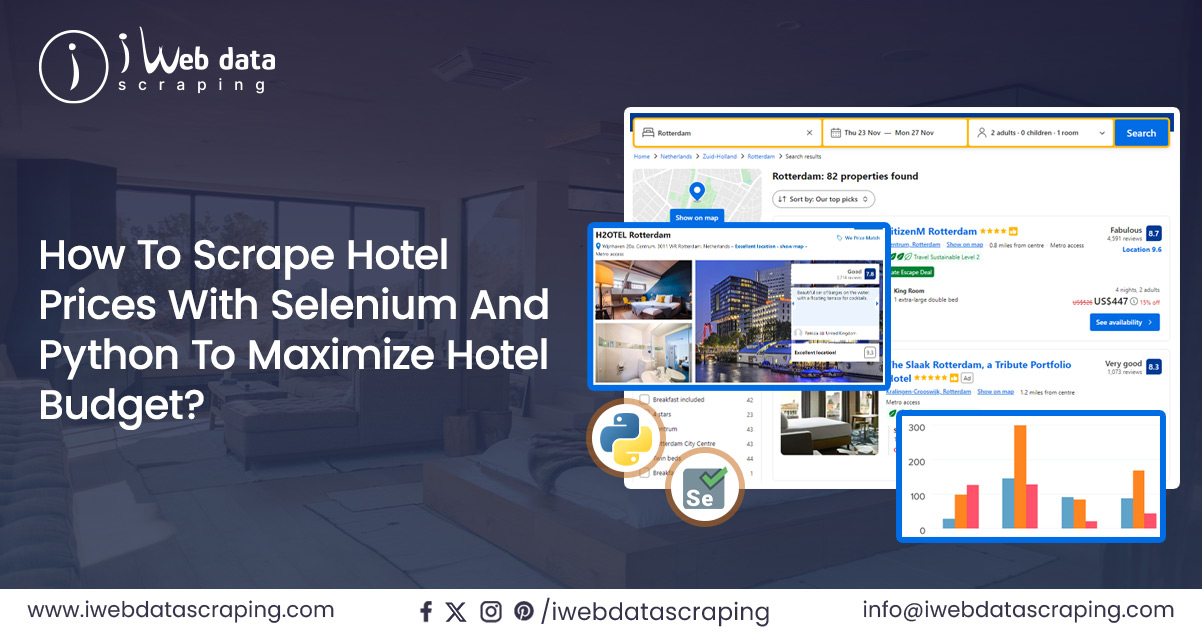
Hotel data scraping is a pivotal tool in the travel and hospitality industry. By extracting information from various hotel websites, it offers a wealth of valuable insights. These include detailed information on accommodations, prices, availability, customer reviews, and amenities. Such data is instrumental for travelers, enabling them to make informed stay decisions. For businesses, it allows competitive analysis, strategy development, and market research. Additionally, hotel and service providers can enhance their offerings by monitoring customer reviews and feedback. As the industry evolves, data-driven decisions, personalized services, and effective marketing strategies become increasingly crucial, making hotel data scraping an indispensable asset in an ever-changing landscape.
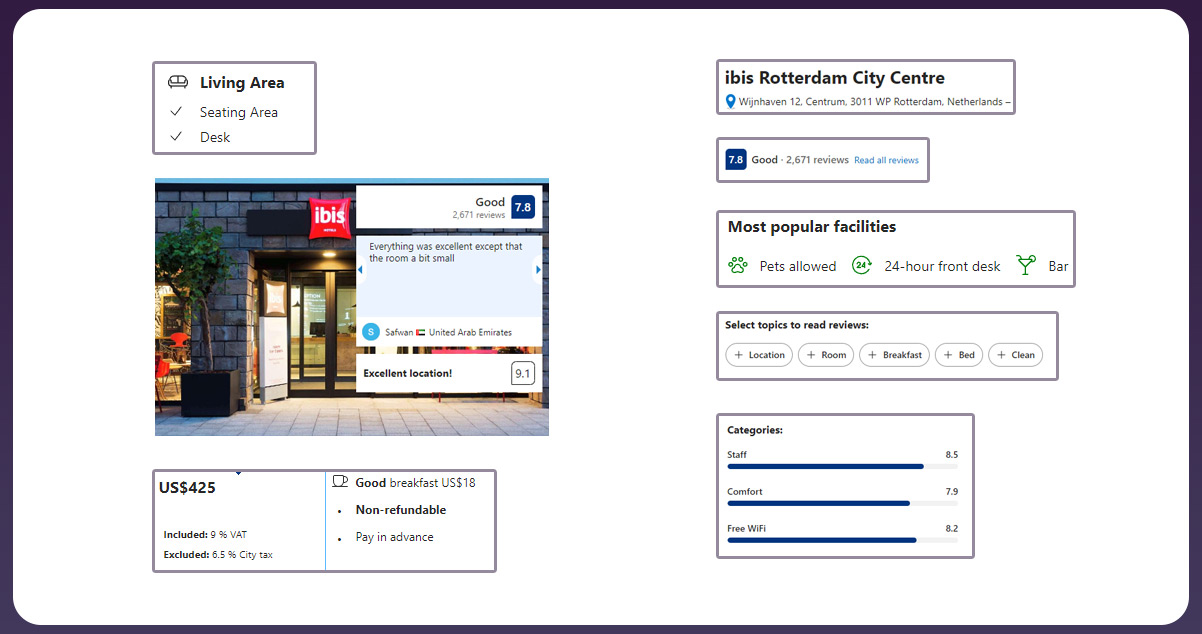
Scraping hotel price data serves as a cornerstone in the realm of travel and hospitality for a multitude of compelling reasons:
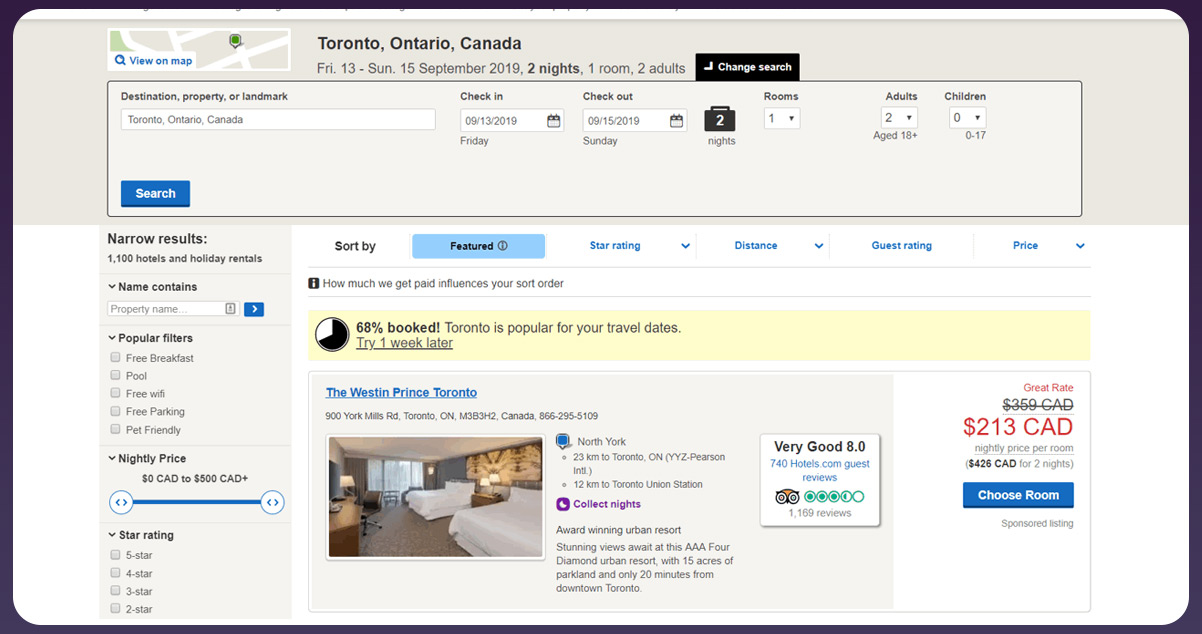
Hotels.com is a widely recognized online accommodation booking platform that offers an extensive range of hotel listings, vacation rentals, and other lodging options. The platform existed in 1991 and has become a prominent player in the travel and hospitality industry, catering to travelers seeking accommodations across the globe. Hotels.com provides a user-friendly interface, comprehensive search and filter options, and user-generated reviews, making it a popular choice for travelers looking for a diverse selection of properties. The platform offers loyalty programs and rewards, adding value for frequent travelers. With a commitment to offering a seamless booking experience, Hotels.com has earned its reputation as a reliable and convenient resource for leisure and business travelers. Scrape Hotels.com data to access a wide array of valuable information on hotel listings, prices, availability, and user-generated reviews, aiding in informed travel decisions and market analysis.
In this tutorial, we'll guide you through creating a customized hotel data scraper for tracking and extracting hotel prices from Hotels.com. This tool empowers you to secure your desired room at the best rates. By simply adjusting the city, check-in, and check-out dates, you can run this scraper on a schedule, making the process seamless. With a straightforward purpose in mind, let's dive straight into the code to get you started.
The hotel price web scraping framework includes the following:
Selenium Web Driver: Widely used for automating web browser actions in scraping and testing. When you scrape hotel prices with Selenium and Python, Selenium executes commands like loading pages, clicking elements, and retrieving rendered content from the web browser. To install Selenium, visit http://www.seleniumhq.org/download, and for Python Bindings, check http://selenium-python.readthedocs.io/installation.html.
LXML: Used for data extraction from HTML source code. LXML allows parsing of HTML/XML structures using Xpaths. Explore XPaths' significance in web scraping at XPaths and learn installation steps at http://lxml.de/installation.html.
Python 2.7: The programming language that forms the foundation for implementing web scraping processes.
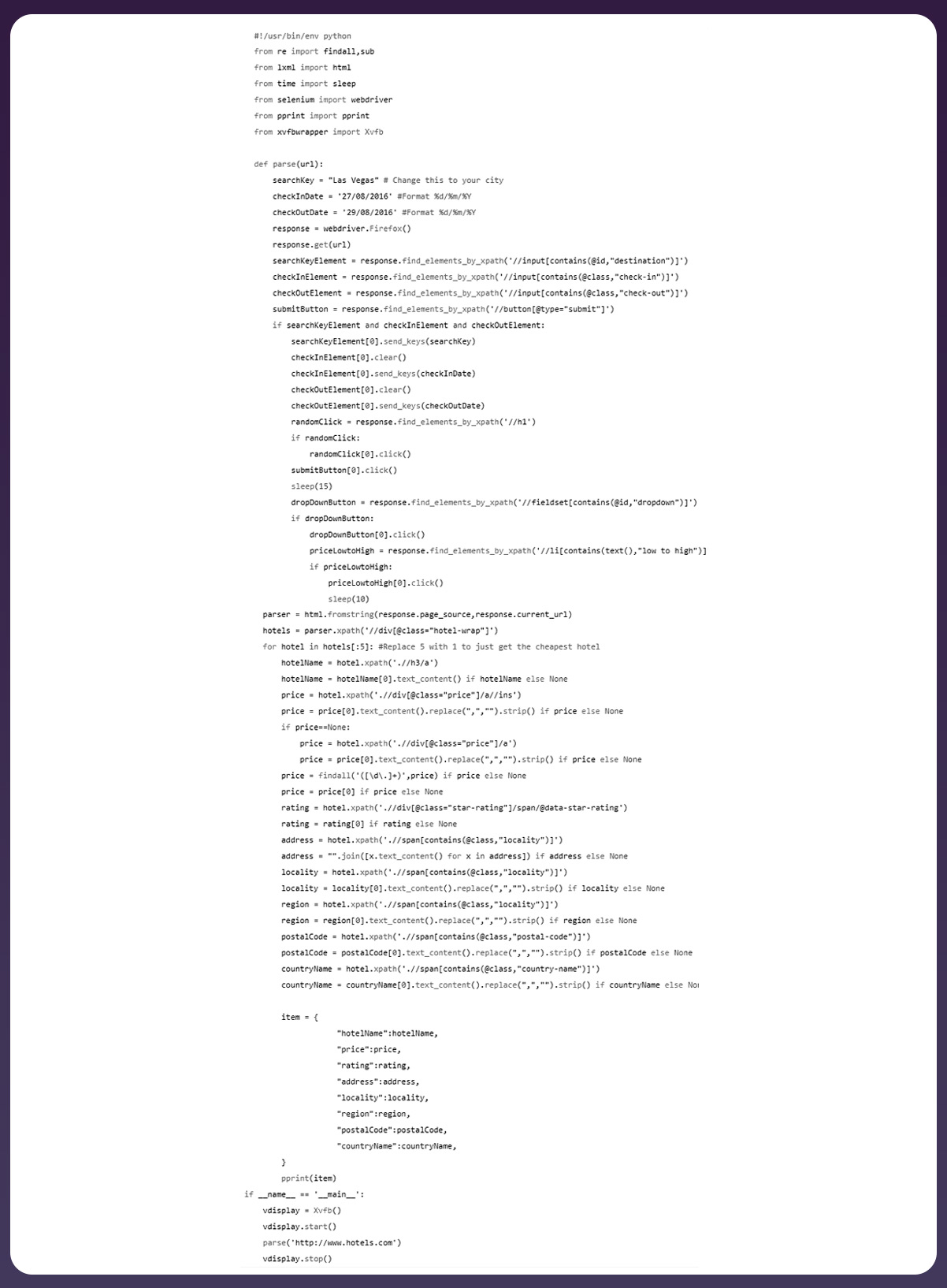
Open your preferred text editor and adjust to the line by specifying the City Name, Check-In Date, and Check-Out Date. Upon doing so, you'll receive a list of the top 5 most budget-friendly hotels for your stay.
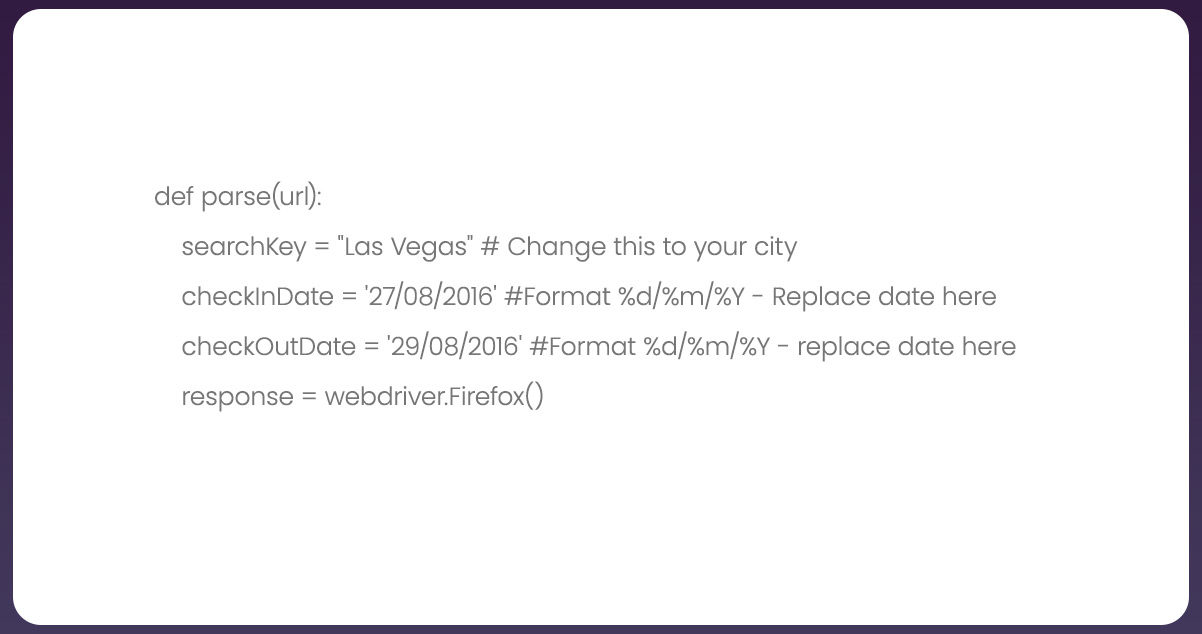
Execute this from the command prompt as follows (assuming the filename is "hotels_scraper.py"):
It will display the results as a Python dictionary in the command prompt. For Las Vegas, the output will resemble the following:
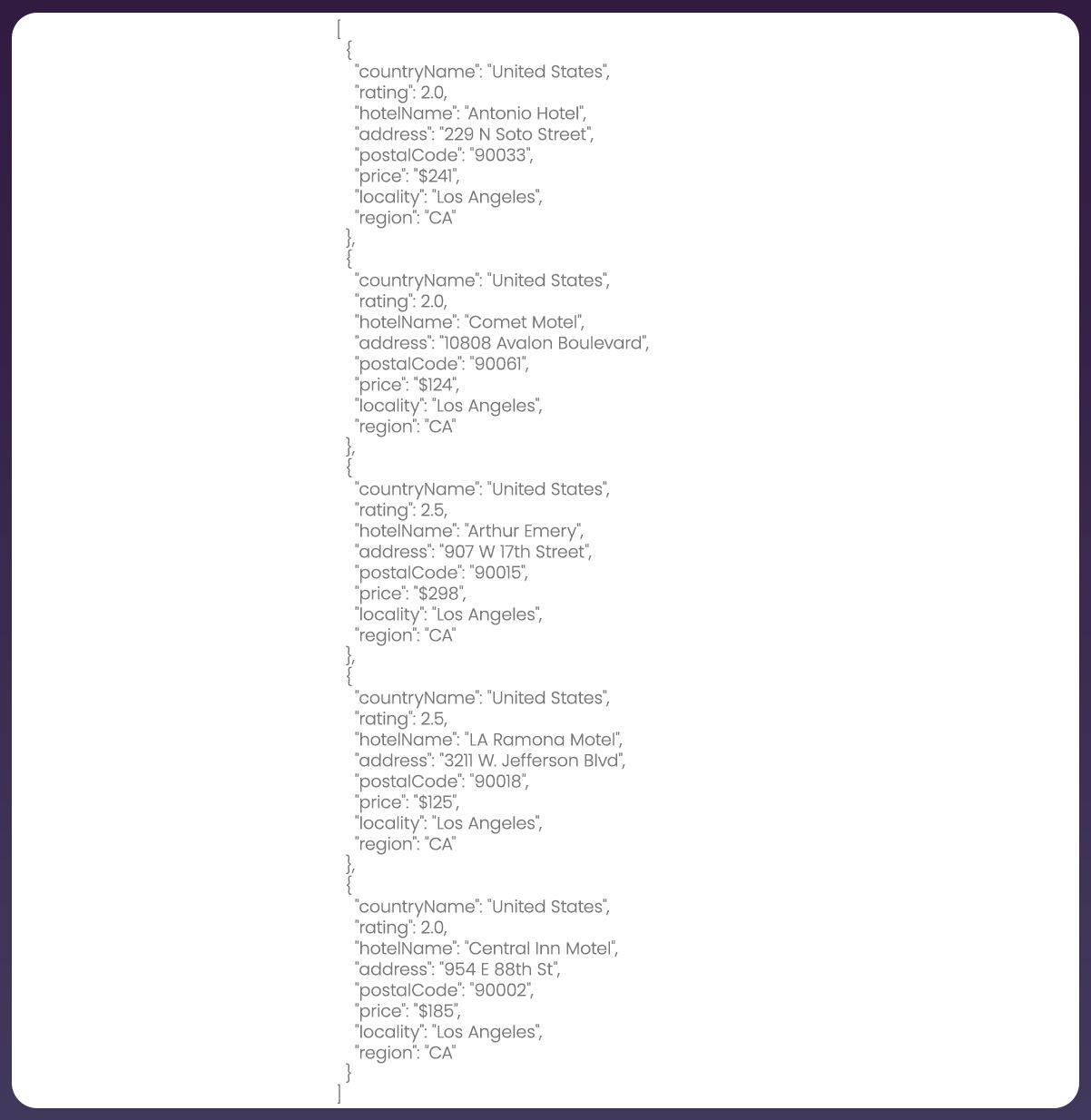
Conclusion: Scraping hotel price data from Hotels.com is a powerful means to revolutionize the travel and hospitality landscape. This invaluable practice empowers travelers with the ability to make well-informed, budget-conscious decisions, securing the best deals for their accommodations. Simultaneously, it equips hoteliers with competitive analysis tools, dynamic pricing capabilities, and personalized offerings that enhance the guest experience. Researchers gain insights into evolving market trends and traveler preferences, contributing to the industry's adaptability. By optimizing revenue and ensuring long-term sustainability, scraping hotel price data from Hotels.com not only benefits individuals but also fuels the growth and innovation of the entire hospitality sector.
Please don't hesitate to contact iWeb Data Scraping for in-depth information! Whether you seek web scraping service and mobile app data scraping, we are here to help you. Contact us today to discuss your needs and see how our data scraping solutions can offer you efficiency and dependability.